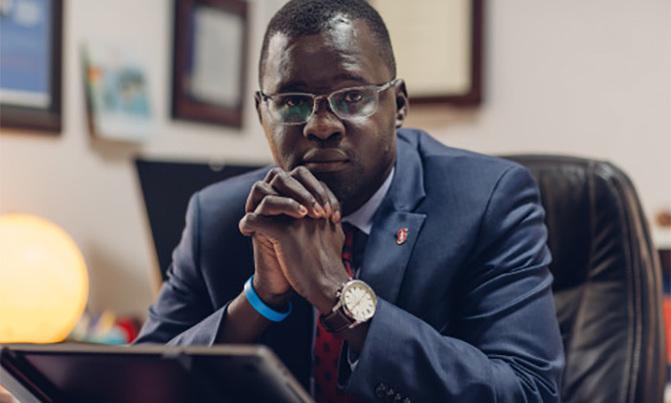‘Gay or not gay, Uganda’s Anti-Homosexuality Act is coming for you,’ human rights lawyer warns
Joto La Jiwe is a Ugandan correspondent for the African…
Human rights lawyer warns of AHA’s overreach ahead of Constitutional Court hearing

“Gay or not gay, Uganda’s AHA is coming for you.” That is human rights lawyer Nicholas Opiyo’s description of the effects of Uganda’s Anti-Homosexuality Act 2023 (AHA), a law that has been described as draconian by international organizations for its strict crackdown on homosexuality, including stiffer criminal penalties for same-sex intercourse, a prohibition on “promotion” of homosexuality, and an obligation on all people to report LGBT people to the government.
Opiyo leads Chapter Four Uganda, a civil liberties organization, which is a leading litigant appealing to the Ugandan Constitutional Court to nullify the AHA. That court has set Dec. 11 to hear four petitions challenging its legality.
As The East African reported, the court set the date after the petitioners agreed to consolidate all four petitions and 19 applications that were filed by different individuals and groups.
The petitioners include West Budama North East MP Fox Odoi, Uganda’s Deputy High Commissioner to South Africa Kintu Nyango, veteran journalist Andrew Mwenda, Makerere University Law professors Sylvia Tamale and Busingye Kabumba, and several civil society organisations, including Chapter Four.
Opiyo says the law is dangerous to every Ugandan whether gay or not.
Opiyo sounded the alarm on Nov 9, while appearing on Strength & Solidarity, a podcast about the tools, tactics, and ideas driving and disrupting the human rights movement around the world. Host Akwe Amosu has more than 30 episodes of interviews with human rights defenders form around the globe.
“This law is only about 40% about LGBTI folks,” Opiyo says on the podcast. “The rest is about civic space, free expression, access to essential services, and it has impact on research work. Anybody who is doing research work on African sexuality could easily be accused of promoting homosexuality. Anybody who is providing any service to LGBTI folks can easily be construed to be promoting homosexuality. So, the law is much broader in its impact, and it is much more dangerous to everybody else, over and above the LGBTI community.”
Opiyo says that’s one of the reasons why he joined several other petitioners to challenge AHA 2023 in the Constitutional Court.
“My plight as privileged human rights lawyer pales in comparison to the pain and suffering of individual LGBTI folks in this country who every single day have to encounter discrimination in ways that are unspeakable, in ways that sometimes are unreported, but every single day, every single hour, have to contend with widespread hatred. So I’m privileged and my struggles really pale in comparison to their own. And I’m happy to be at the forefront of this fight in helping, to ensure equality for every single Ugandan, regardless of their sexual orientation or gender identity,” he says.
According to the report by the Human Rights Awareness and Promotion Forum (HRAPF) on violence and violations based on real or presumed sexual orientation or gender identity during October, service providers who are not gay have already come under attack courtesy of AHA.
HRAPF reports that a social worker teaching transgender youths employable skills as part of his work at an LGBTQ organization in a refugee settlement in Isingiro District in Western Uganda was forced to move the training workshop from his home after an altercation with his landlord. The teacher started working from the organization’s office, but it was burnt down and the people who did so threatened to harm him and his people next time if they did not stop.
This and many other related cases are directly linked to the AHA because they became rampant after the enactment of the law. In almost all the cases, the attackers justify their criminal and homophobic acts by citing the AHA.
In the podcast, Opiyo compared AHA 2014 and AHA 2023, saying AHA 2023 is worse, much as in terms of text, they are largely the same.
“In essence, the entire law in 2014 was reintroduced and certain provisions added to it, namely, the provisions requiring everybody to report anybody they think is, or they know as being a member of the LGBTI community. So, there’s a reporting obligation on everybody. You also have a sex register if you are convicted. Your name is supposed to enter into a register. You also have a provision that prohibits you from public employment or occupying public office for a period of 10 years if you’re convicted under the law. Everything else is really the same, namely the prohibition of same-sex conduct, the prohibition of what they call promotion of homosexuality, the work of other organizations working with the community. The death penalty is still maintained for what is called aggravated homosexuality, namely if somebody has carnal knowledge of a child, or a person with disability, or a relative”.




